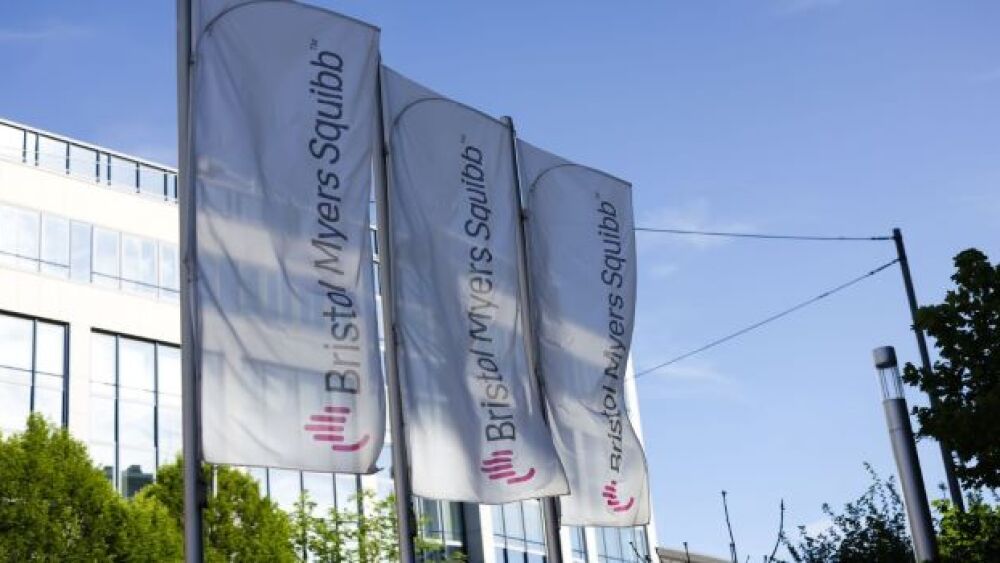Bristol Myers Squibb is expanding its strategic collaboration with German partner Evotec for eight more years to discover and develop treatments for neurodegenerative diseases.
Pictured: Three flags with BMS logo/Jeremy Moeller/Getty Images
Bristol Myers Squibb (BMS) is expanding its strategic collaboration with German partner Evotec for eight more years to discover and develop treatments for neurodegenerative diseases.
Under the terms of the expanded agreement, BMS will make a $50 million upfront payment to Evotec and will commit an undisclosed amount in license and performance milestones, as well as tiered royalties of up to low double-digit percentages of product sales.
Overall, the expanded deal has a potential value of $4 billion.
At the core of the long-standing partnership is Evotec’s induced pluripotent stem cell (iPSC) platform, which uses patient-derived cells for drug screening. This iPSC technology also leverages several of the company’s key capabilities to define disease signatures and identify relationships between mutations and its potential effects on molecular pathways.
Evotec’s bank of fully validated iPSC lines serve as strong human translational models that can be used to identify targets and potentially therapeutic compounds.
Aside from neurodegenerative diseases, Evotec is also using its iPSC platform for a wide variety of conditions, such as age-related macular degeneration, autosomal dominant polycystic kidney disease, diabetic nephropathy and chronic kidney disease.
A Productive Partnership
Evotec first inked the neuro partnership in December 2016 with Celgene, which BMS acquired in 2019. The deal was inked with the goal of identifying disease-modifying treatments for several neurodegenerative diseases, including amyotrophic lateral sclerosis, Parkinson’s disease and Alzheimer’s disease.
For an upfront cost of $45 million and up to $250 million in subsequent payments, Celgene bought exclusive options to in-license programs that would come out of this partnership.
In June 2019, the partners expanded the agreement to include a new cell type, which triggered a $9 million milestone payment to Evotec.
The collaboration yielded its first candidate in September 2021. Dubbed EVT8683, the small molecule compound targets an important cellular stress response pathway and could have a therapeutic effect in many different neurodegenerative conditions. BMS licensed EVT8683 after its successful New Drug Application and initiated a Phase I clinical study the same year.
In November 2021, the partnership hit another milestone when it reached another program designation, triggering a $40 million payment to Evotec. This program is expected to follow EVT8683, though no compound has been announced yet.
BMS and Evotec again expanded this neuro partnership in January 2022, seeking to use a targeted protein degradation approach to tackle neurodegenerative conditions.






